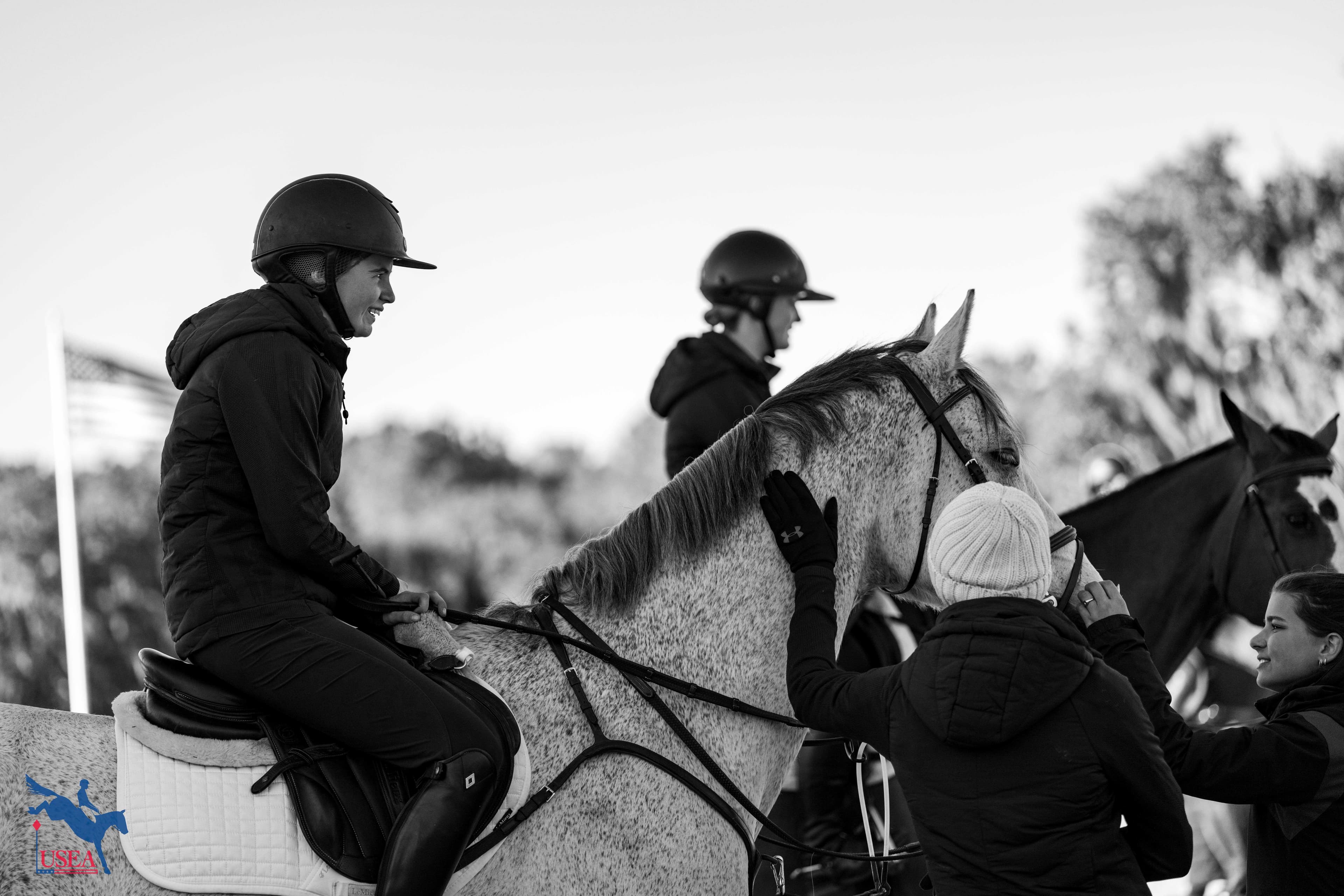Eventing Updates from the FEI

Eventing’s “quiet” season has been anything but quiet this year, and the past few weeks have seen a series of key meetings focusing on important aspects of the sport.
Warendorf (GER) hosted a four-day workshop in mid-January at which 40 senior experienced eventing judges focused on eventing dressage. The objective was to reach consensus on dressage judging parameters for the discipline, with participants working as individuals and in groups with both video footage and live judging. Wide-ranging discussions touched on topics such as what makes a good extended walk, what is a true pirouette, how many points should be deducted for a mistake – all of which generated lively debate. A short session on cross-country judging, led by FEI Eventing Committee Chair, David O’Connor, was also included.
This was followed by the Eventing Risk Management seminar, which was held in the Olympic Museum in Lausanne (SUI) on January 27 and 28. National Safety Officers and National Federation representatives from 23 countries attended: Australia, Austria, Canada, Denmark, Spain, Finland, France, Germany, Great Britain, Hungary, Ireland, Italy, Japan, Netherlands, Norway, Poland, Portugal, Romania, Russia, Switzerland, Sweden, Thailand, and the United States of America, and high level presentations on cross-country risk management provided an optimal environment for information exchange.
The meeting was chaired by David O’Connor, who presented key sport statistics extracted from the data collected over the past 10 years, clearly demonstrating the sport’s growth and an ongoing improvement in safety protocols as a result of the Eventing Risk Management Policy and Action Plan.
Numbers of starters continue to grow, showing a 30% increase in the past 10 years from 14,268 starters in 2008 to 20,600 in 2017. The number of competitions has also increased, up 40% in the past 10 years to 690 last year. Horse falls continue to decline in relation to the percentage of starters. In the decade between 2008 and 2017, horse falls have reduced from 1.7% of starters to 1.38% last year.
Other key topics discussed during one and a half days of interactive presentations were the importance of coaching at all levels, prioritizing the education of athletes on competition preparation, and the global establishment of mandatory medical return to play protocols after a fall. The seminar also focused on the continued sharing of information and the importance of collecting quality data on numbers of starts, falls and injuries in order to continue the ongoing work on establishing trends that could lead to an adjustment of FEI policies. The second part of the seminar offered National Federations the opportunity to present to the group. Following a presentation by the German National Federation on a new frangible device, which they are planning to put forward for FEI testing before the end of 2018, delegates all agreed on the importance of information sharing on the use of all safety technology. A fence judging app, which has been created for national use in Germany, will now be further developed for international use to educate fence judges on the implementation of FEI Rules. It will be made available free of charge to all National Federations.
Heather Cameron Whytock (GBR), talked on comprehensive data analysis of the risk factors for cross-country horse falls at British Eventing competitions, the psychological impact of competing nationally versus internationally, preventive assessment of athletes, and a University of Exeter thesis on the use of heart rate monitors on both the human and equine athlete.
The appointment of National Safety Officers is mandatory for eventing as part of the FEI’s global Eventing Risk Management programme, and the NSOs form the vital direct line of communication between the FEI and National Federations. A total of 61 National Federations, almost 50% of the FEI membership, participate in the discipline, with 40 of those hosting eventing competitions. A full report will be published on the FEI website.
The Risk Management Steering Group met immediately afterwards to review the recommendations made at the NSO seminar and formulate proposals that will go forward to the Eventing Committee. These included defining how data collection can continue to be improved in order to better understand trends; global improvement of data feedback through standardized reporting; ongoing development of both Course Designer education using a mentoring system and an athlete coaching program. Additionally, the Group will recommend to the Eventing Committee that every National Federation should be required to have a medical return to play rule in place.
Additionally, the Risk Management Steering Group is continuing its review of a number of different methods that will help to provide information on improving qualifications systems and participation criteria for athletes and horses.
The series of meetings concluded with a two-day seminar on Conformity in Eventing (February 2 and 3), designed to streamline themes and discussions that course directors will implement in order to have consistency of information on all FEI Eventing courses. FEI Education in 2018, the Officials’ evaluation system and requirements for promotion, and risk management were all discussed in detail.
Participants attending the 2018 Conformity seminar included Eventing Judges, Course Designers, Technical Delegates and Stewards: Christina Klingspor (SWE), Alec Lochore (GBR), Martin Plewa (GER), Geoff Sinclair (AUS), Eric Winter (GBR), Anne-Mette Binder (DEN), Nick Burton (GBR), Mike Etherington-Smith (GBR) and Nicky Fuller (GBR), who has been appointed by the FEI as the author for eventing content on the FEI’s e-learning platform, FEI Campus.














